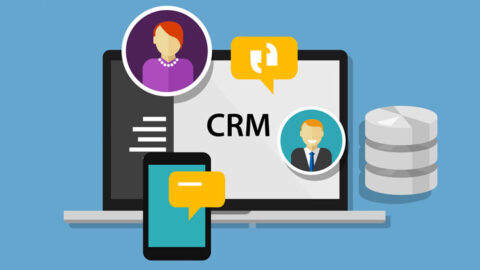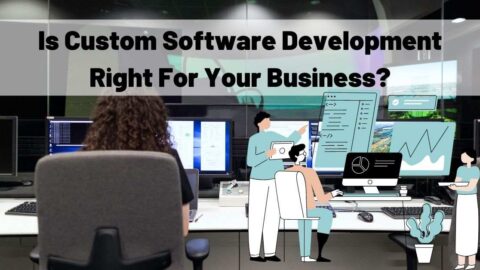Content Marketing Strategies for SaaS Businesses
In today’s era, content marketing has become crucial for businesses, including SaaS (Software as a Service) companies. To thrive in a market, SaaS businesses must. Implement effective content marketing strategies. Before delving into these strategies, it is essential to understand the SaaS business model. Unlike software companies, SaaS businesses offer their software as a service through subscription-based models. Success in this industry depends not only on acquiring customers but also on retaining them over the long term. Considering this, let’s explore some approaches for content marketing strategy for SaaS businesses to attract, engage, and retain customers.
Table of Contents
What is a content strategy for SaaS?
A content strategy for SaaS involves planning and creating valuable and educational content to attract and engage the target audience within the SaaS industry. It includes understanding the target audience, creating informative content, establishing thought leadership, optimizing for search engines, leveraging user-generated content, distributing content through various channels, measuring performance, and continuously improving the strategy. This approach helps build brand credibility, educate potential customers, generate leads, and drive user acquisition and retention, it’s generally developed by an in house team or by an external specialized firm like this agency.
How does content marketing benefit SaaS companies?
- Increased brand awareness
- Establishing thought leadership and credibility
- Lead generation through valuable content
- Educating and guiding potential customers
- Engaging and retaining existing customers
- Improved search engine visibility and website traffic
- Social media and viral potential for wider reach
- Competitive advantage over competitors
- Cost-effective marketing compared to traditional methods
1. Produce Valuable and Informative Content Marketing Strategy for SaaS
One content marketing strategy for SaaS businesses involves creating valuable and informative content that caters to their target audiences’ needs. This can take forms such as blog articles, whitepapers, case studies, or even video tutorials.
To establish themselves as figures and industry experts, SaaS companies can create content that addresses the challenges and concerns of their target audience. This approach not only helps attract customers but also fosters trust and credibility among existing ones.
2. Utilize SEO for Organic Traffic Generation
Search Engine Optimization (SEO) plays a role in driving traffic to a SaaS company’s website. By optimizing their content with keywords and building a backlink portfolio, SaaS businesses can enhance their search engine rankings and increase visibility in search results.
SaaS companies must conduct keyword research to identify the terms and phrases their target audience is searching for. By creating content centered around these keywords and optimizing website pages accordingly, SaaS businesses can effectively reach their desired audience while driving traffic to their site.
3. Harness the Power of Social Media
Social media platforms present opportunities for SaaS companies to connect with their target audience and promote their content. By leveraging platforms like LinkedIn, Facebook, or Twitter, SaaS businesses can expand the reach of their content and engage with their audience on a personal level.
SaaS companies should identify the social media platforms where their target audience is most active and establish a presence there. To establish a devoted following while driving traffic to their website, SaaS businesses can achieve this by sharing valuable content and actively engaging with their audience.
4. Leverage the Power of Email Marketing
Another strategy for SaaS businesses is to utilize email marketing. By building an email list and sending targeted, personalized emails to subscribers, SaaS businesses can nurture leads and successfully convert them into paying customers.
SaaS businesses must focus on creating email content that addresses the pain points of their subscribers. This could include providing tips, real-life case studies, or exclusive discounts and offers. By delivering value through these emails, trust and credibility are built among subscribers, thereby increasing customer loyalty and retention.
5. Establish a Referral Program
Word-of-mouth marketing holds potential for SaaS businesses. Implementing a program can amplify this effect by incentivizing existing customers to refer their friends and colleagues. By using SaaS, businesses can acquire customers at a lower cost compared to traditional marketing channels.
A designed referral program should reward both the referrer and the referred customer. This could involve offering discounts, free upgrades, or even cash incentives. To harness the influence of word-of-mouth marketing and attract customers, SaaS businesses can simplify the process for their existing customers to refer people from their network.
6. Engage with Content Created by Users
User-generated content (UGC) holds value for SaaS businesses. By encouraging users to share their success stories and testimonials or create content related to the SaaS product, businesses can harness the power of proof and authenticity.
SaaS businesses should actively participate in and share user-generated content on their website and social media platforms. This not only promotes the business but also highlights the value and effectiveness of the SaaS product to potential customers.
7. Monitor and Analyze Performance
Lastly, SaaS businesses need to monitor and analyze the performance of their content marketing endeavors. By tracking metrics like website traffic, conversions, and customer retention rates, SaaS companies can identify what strategies are effective and where improvements can be made. Furthermore, utilizing marketing analytics tools allows SaaS businesses to gain insights into their target audience’s behaviors and preferences. This information can then be utilized to optimize content, enhance targeting efforts, and achieve outcomes.
Conclusion on content marketing strategies for saas
To sum up, content marketing is a strategy for SaaS businesses to captivate and maintain their customer base. By generating notch and informative content and optimizing it for search engines and social media platforms, employing email marketing techniques incorporating a program interacting with user-generated content, and tracking performance metrics, SaaS businesses can successfully market their offerings and expand their clientele.

Magdalena Polka is a Business Solution Designer and an Information Technology / Project Management consultant and author with over 15 years of software development, management and project management experience.












